What to Do if You Find Yourself in the Open Sea
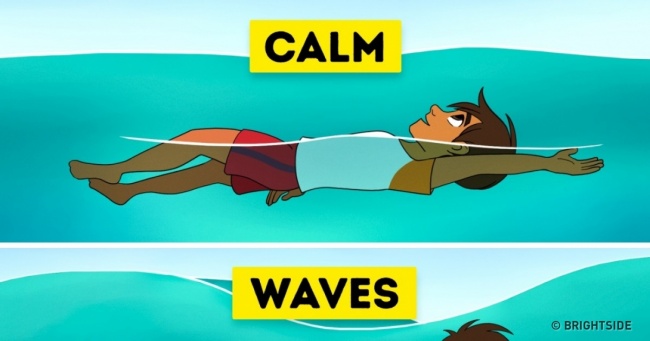
Most of us adore beach resorts and go to one of the large saltwater bodies at least once a year. However, we shouldn’t forget that the sea is as attractive as it is wayward.
We at FunnyModo wondered how a person who happened to be in the open sea should behave. It turns out there are several rules that aren’t at all difficult to remember.
Calm yourself
It’s not surprising that people who find themselves in the open water have a wild fear for their life. However, panic definitely won’t help you — it can cloud your judgment and make you lose the necessary rhythm of breathing. Therefore, the first thing you should do is try to calm down.
Choose the right swimming style
In this situation, sooner or later you’ll have to move in the water. The style of swimming you choose will determine how long your strength will last. Remember this rule:
- In calm water, it’s better to swim on your back because you’ll get the opportunity to relax as much as possible and breathe evenly.
- If waves splash around you, it’s better to swim on your belly. For example, try the breaststroke. Take a breath of air, then lower your head into the water and exhale. If you don’t have to keep your head above the water’s surface all the time, you’ll save more energy.
Find something that floats
If you’re in the open sea as a result of a shipwreck or an airplane water landing, there must be plenty of things around you that perfectly keep afloat. It will be even better if it’s a boat or a raft with which ships are equipped.
Take care of clothes
Remember that open sunlight can be extremely dangerous. So don’t take off your clothes — they’ll protect you from the sun.
If you’re half-naked, try to find something that can shelter you from the sun’s rays. Ideally, build a tent that’ll create shade.
Decide what you’ll eat
It’s good if you have an emergency food ration on your raft. However, you won’t necessarily starve without one.
- If you have rations, divide them into small daily portions. This will make them last for a long time, and you won’t have problems with digestion.
- If you don’t have one, you can make a fishing rod from lace and, for example, a piece of can (for a hook) and try to fish. If you lack such items, try catching seaweed. Small fish can get stuck there.
- Try to fish even if you have stores of food. After all, fish contain some liquid.
- Don’t eat spoiled foods, no matter how hungry you are.
Constantly provide yourself with liquid
During a forced sailing, water is much more valuable than food. After all, you almost don’t move and you are wasting little energy. Yet liquid is consumed constantly. Remember that you should not drink seawater.
- Condensate. You’ll need a box, two containers, waterproof material, and weights. Take one container, and pour seawater inside. Place the other in a box next to it. Secure one piece of waterproof material (such as polyethylene) above both, and put a weight over the empty container. Soon the container will be filled with fresh water.
- Rainwater. Try to ensure that you always have a couple of empty containers left for collecting rainwater.
Save yourself properly
It’s no wonder that in such a situation you’ll want to step on solid ground as soon as possible. However, all your rescue measures should be carefully considered. Remember these rules:
- If you have no idea where you are, don’t row. Rely on the current. It has more chance of carrying you to land.
- Don’t rush into the water if you see a ship in the distance. Don’t try to catch up to it. It’s better to give a signal with a mirror or a piece of can.
- Don’t try to signal by fire so as not to endanger your temporary shelter in the form of a raft.
- If you were lucky enough to get a few flares, don’t send them up in a void — wait until a ship appears at a distance.
- If, among other stuff, you found fluorescein, dissolve it in the water when you see an airplane or ship. It’ll form a bright spot around you which can be easily seen from the air and from afar.
Don’t lose hope
Despair is your most dangerous enemy. Don’t give up hope of being saved. There are many stories of people who were found in the open sea months after their disappearance.
Illustrator Ekaterina Gapanovich for BrightSide.me
Based on materials from Survive Nature

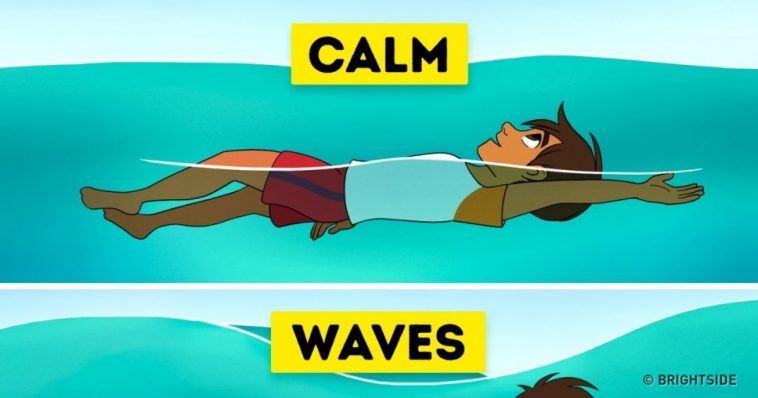
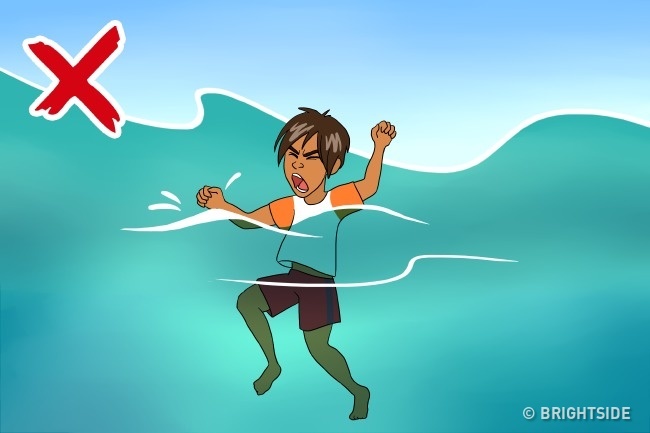
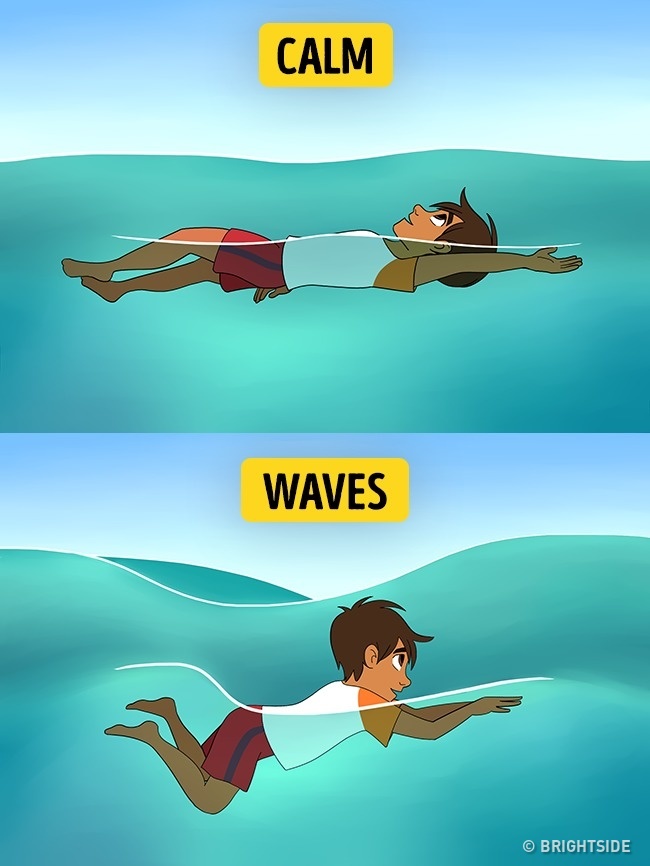
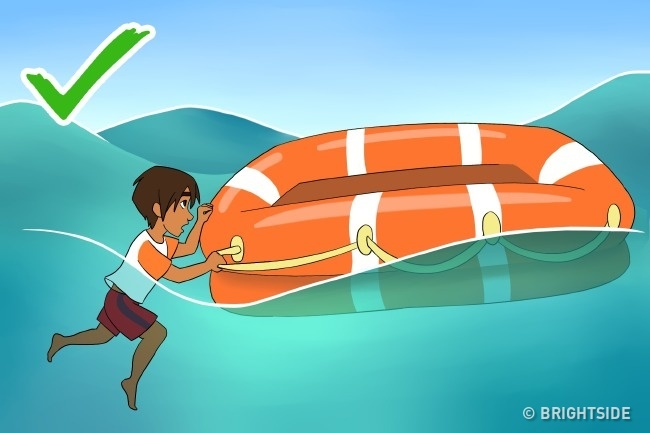
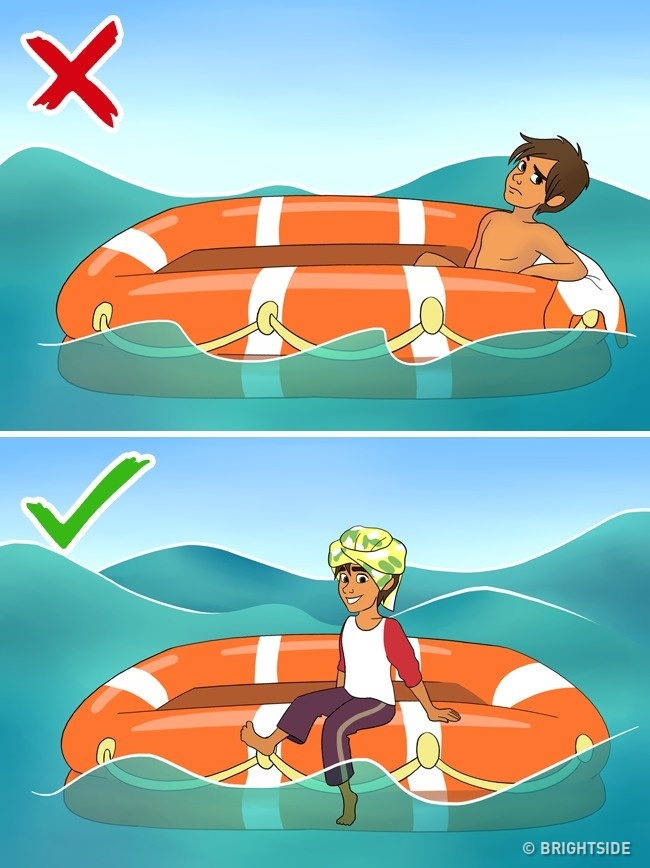
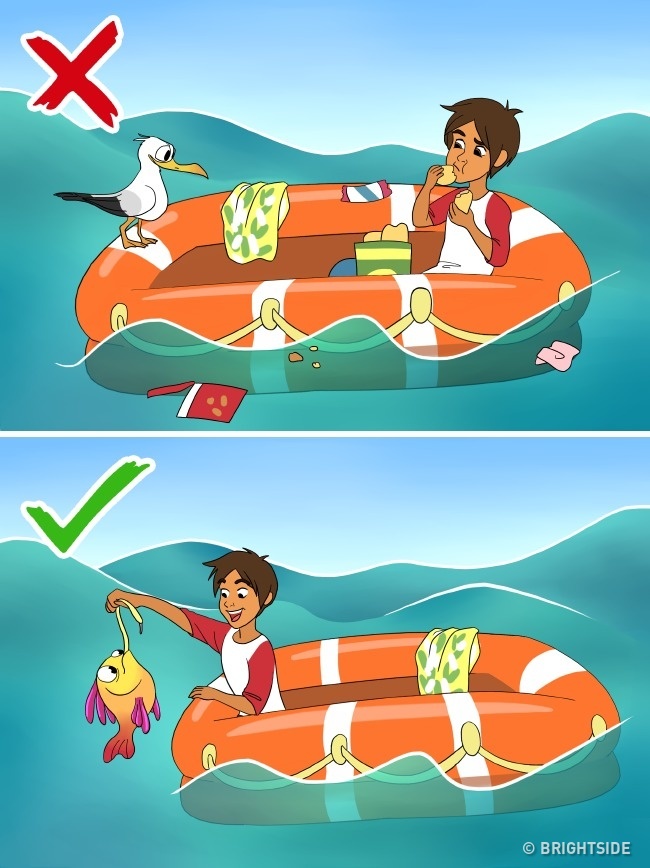
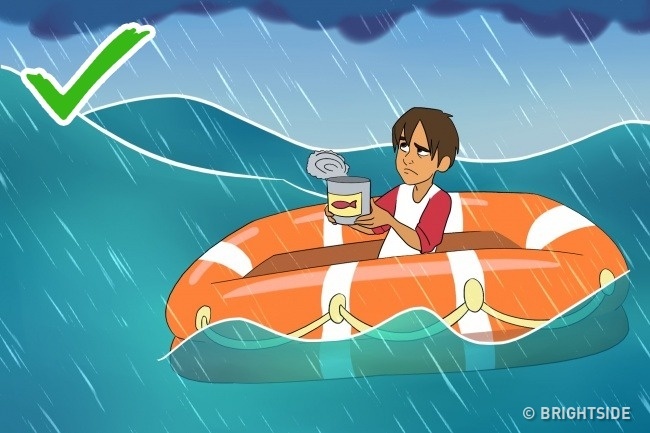
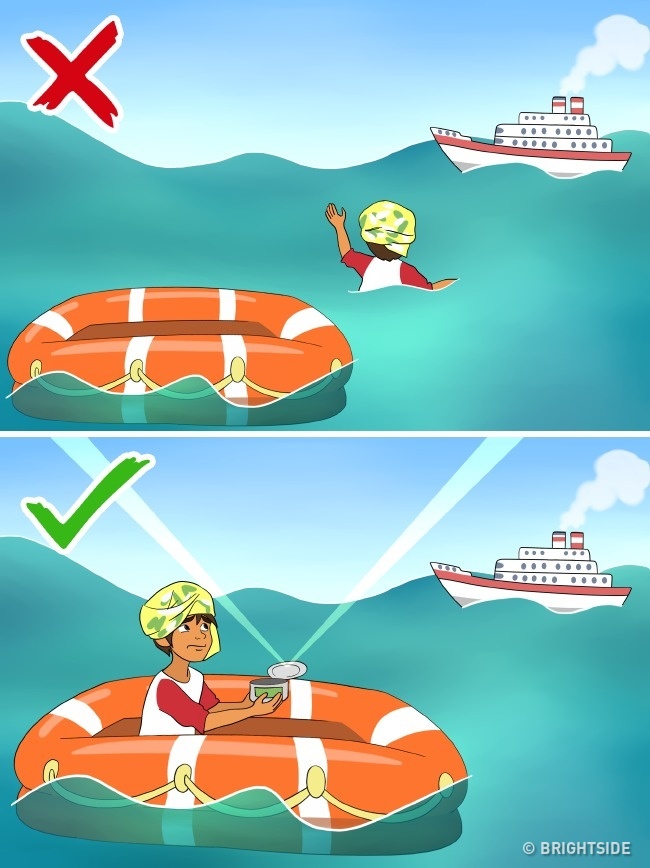
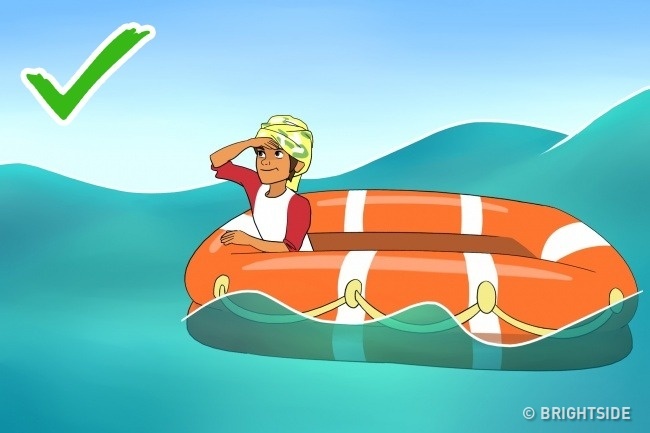


Comments